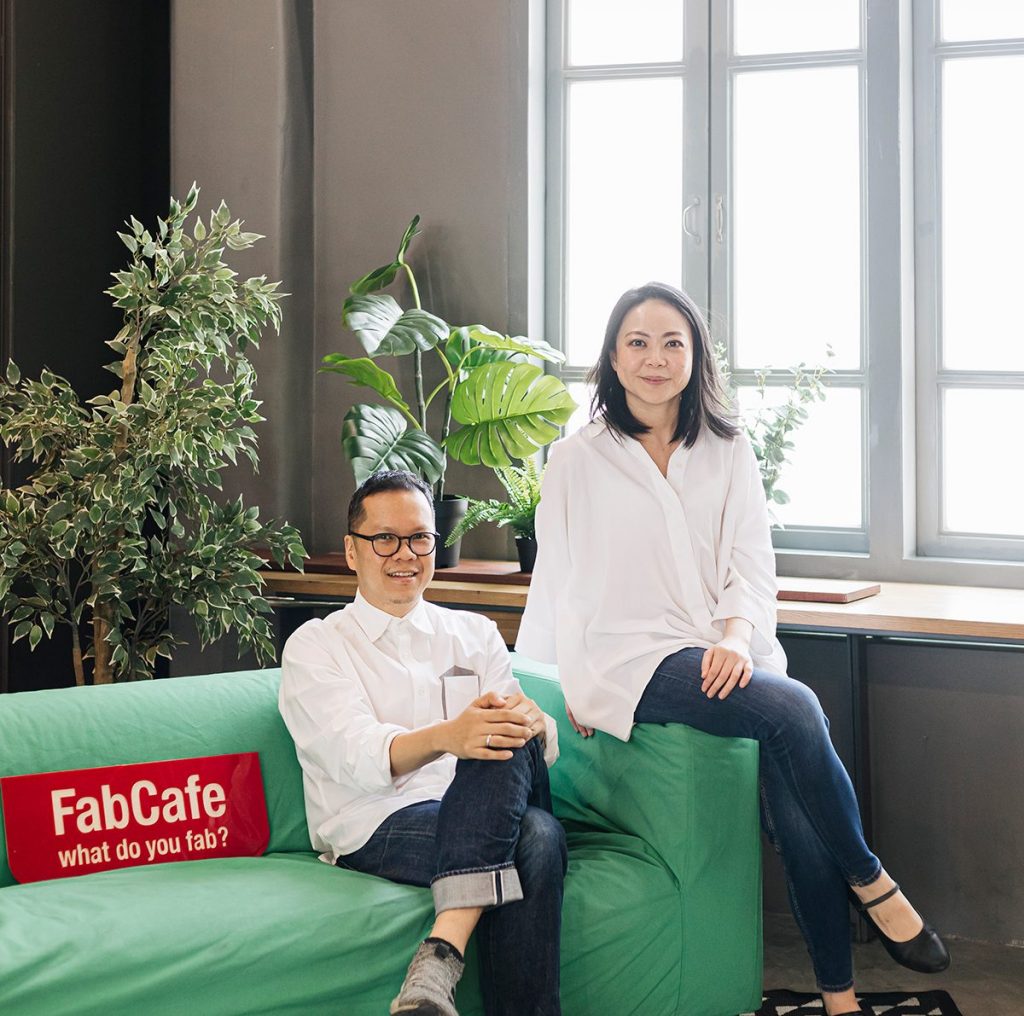How the co-founders of FabCafe Bangkok are teaching 21st century skills in dtac’s Safe Internet youth camp
Ari is a leafy residential neighborhood in Northern Bangkok. Down one of its quiet alleys, what looks like a home actually houses Thailand’s branch of FabCafe. FabCafe started in Tokyo as a gathering spot for the local community of tinkerers, hackers and designers, before growing to 12 “cafes” globally. But Bangkok’s FabCafe is now also working with a much younger crowd. By partnering with dtac’s second Young Safe Internet Leaders Camp (YSLC 2.0), it is equipping Thai kids with important skills to make their online lives safer and more fulfilling.
dtacblog sat with Kalaya Kovidvisith and Samutpon Tanapant. Both are university lecturers and co-founders of FabCafe Bangkok, a place they have defined as “the creative space for design and technology”. They also designed YSCL 2.0 for dtac.
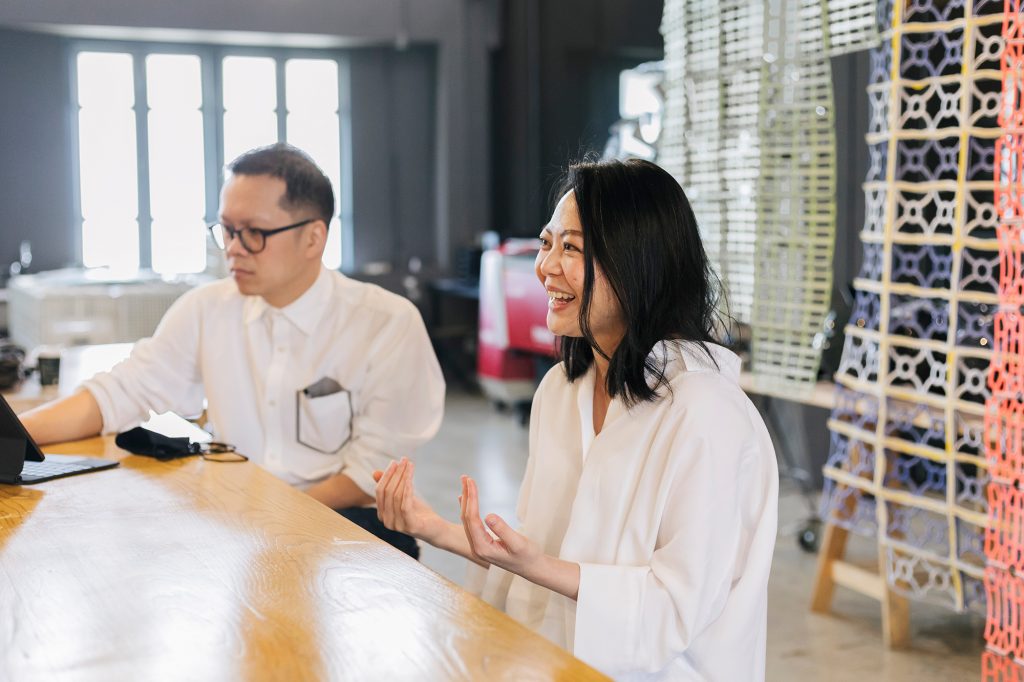
Decoding “Learning Design”
YSLC 2.0 culminates in its young participants designing projects to make the internet a better place for their peers. Before getting to that point, its first module first requires all camp participants study online privacy and sexual abuse, diversity respect to stop cyberbullying, and the anatomy of fake news. The second module features specialized knowledge and skills namely AI chatbot, data visualization, storytelling and board game. The third highlights social impact assessment – which serves as a criterion to evaluate the young participants’ proposed projects.
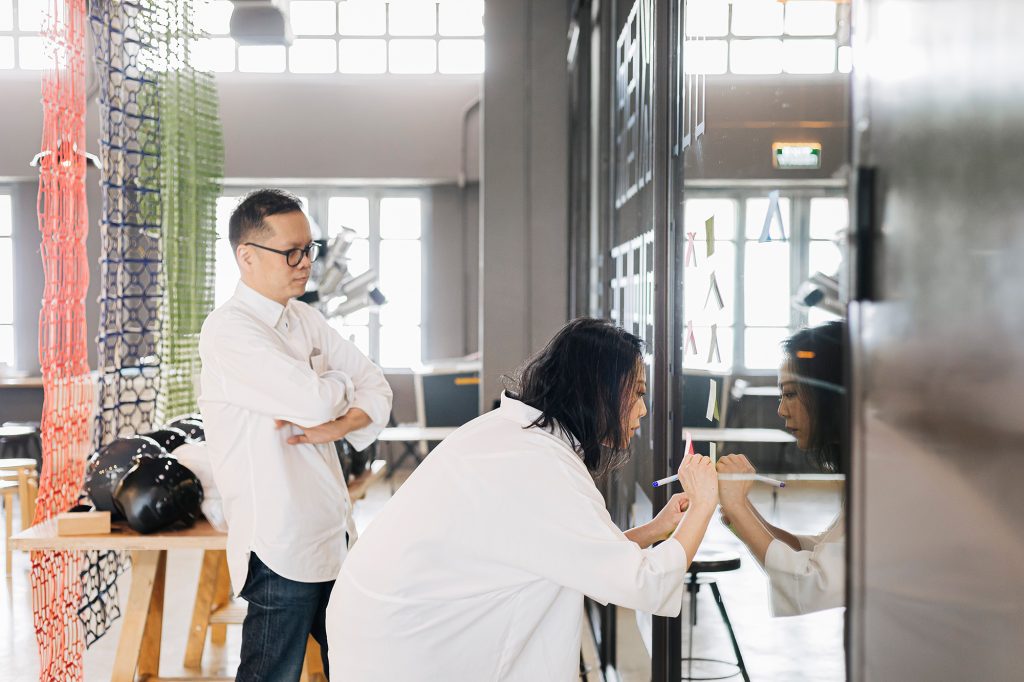
“Most proposed projects, in the beginning, were about the creation of Facebook fan pages. But after young participants completed our online courses, they realized that there are many other ways to tackle problems. AI (artificial intelligence), for example, can help a lot. It was exciting to see that we are expanding youth’s scope of learning, stretching it beyond normal school courses,” Ms. Kalaya said.
Due to the COVID-19 outbreak, YSLC 2.0 has brought all its activities online, attracting more than 20 teams. After their project presentations, team members were mentored by Ms. Kalaya and Mr. Samutpon. Every week, they followed up on the progress of projects and advised the teams.
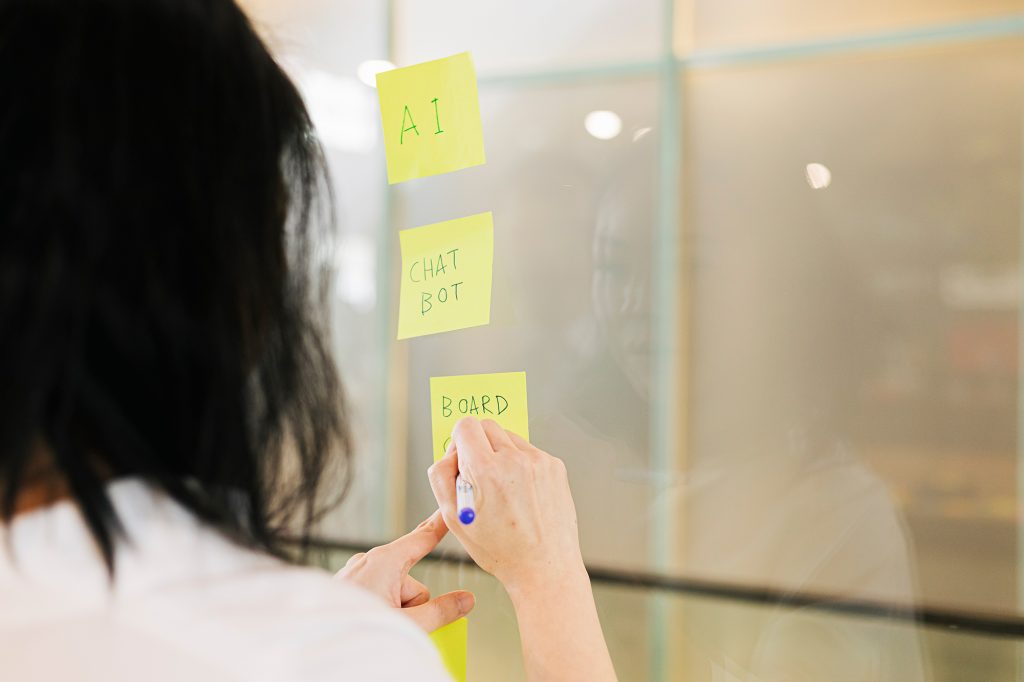
Unleashing Youth’s Potential with 21st-Century Skills
“These days, children are very capable, especially with regard to hard skills. For as long as there are clear learning steps, they learn fast and do well. They are not afraid of technology. But our camp, so far, focuses on equipping young participants with soft skills. We promote collaboration, teamwork, experiential learning, critical thinking, logical thinking, and reasoning. While it is normally hard to develop such skills in a short period of time, our camp can deliver that,” Mr. Samutpon said.
While these two learning designers have recognized the potential of Thai youth, they also see “structural problems” in Thai education. There are “educational-infrastructure gaps in urban and rural students”. Despite having a stronger passion and even the ability to learn faster than their peers from Bangkok, some teams in the provinces do not have a computer.
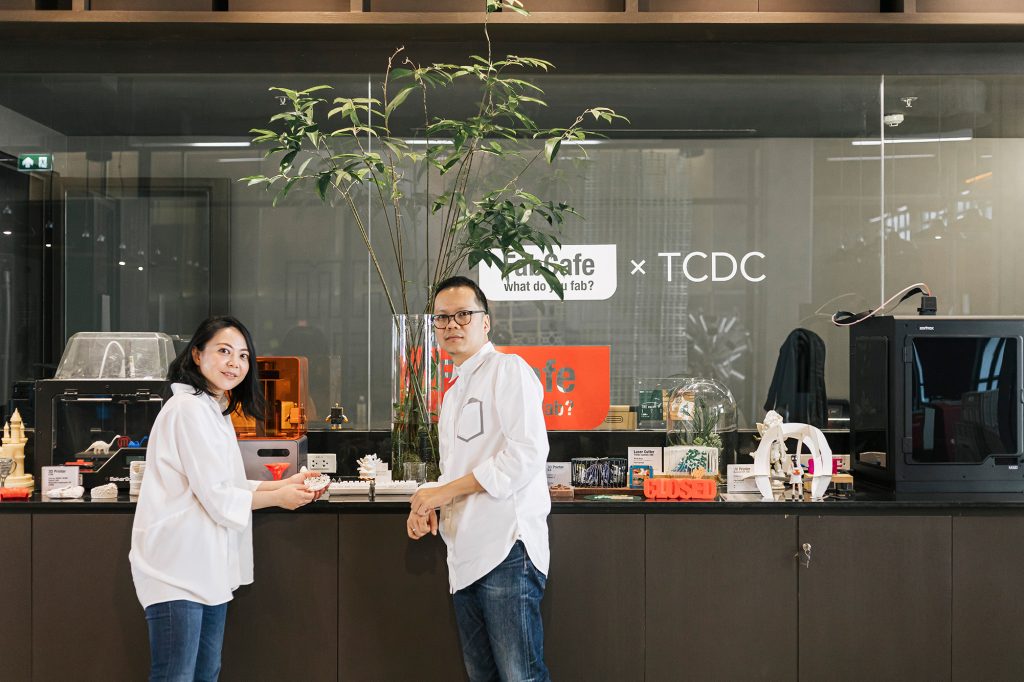
“From the first to the last day of YSLC 2.0, we – as co-designers of learning activities and mentors – can tell you that young participants have developed their project, searched relevant information, and done coding all by themselves until they can create a solution. Their achievements show that the world has already changed. Internet has created new opportunities, influencing youth’s ideas and actions in a big way,” the mentors explained.
Each of the 11 FabCafes in the global network has a different core competency. For example, FabCafe Taipei is famous for machinery development while FabCafe Bangkok places an emphasis on “education”. Mr. Samutpon and Ms. Kalaya both taught at Thammasat University’s Faculty of Architecture.
“Through FabCafe, we have found out that Thai youth’s potential is second to none. It is just that Thai children still lack access to efficient learning methods that resonate well with upcoming trends. Technology and creativity are critical to their future. So, we believe designing better learning systems for Thai education at a structural level is of utmost importance to our national development in the 21st Century,” they explained.
dtac Safe Internet is a series of initiatives to make our online spaces positive and productive. Find out more at about the Young Safe Internet Leader Camp at https://www.safeinternet.camp/

